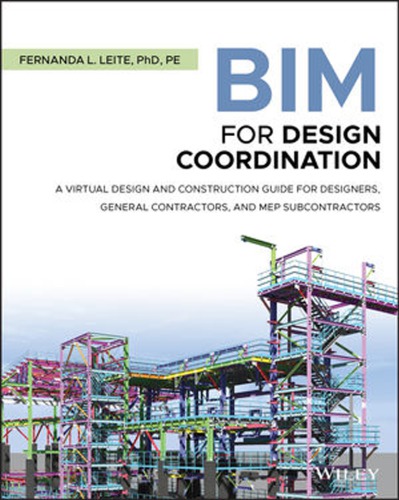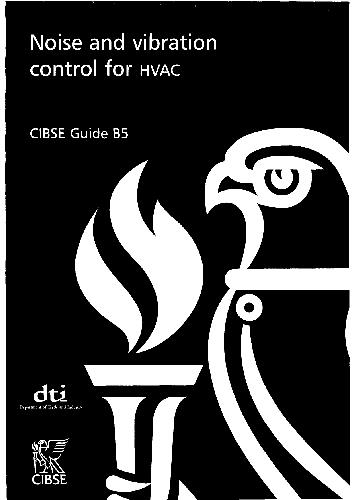| Book Name: | [PDF] Managing Construction Projects An Information Processing Approach |
| Free Download: | Available |
Managing Construction Projects An Information Processing Approach

Managing Construction Projects An Information Processing Approach 2nd Edition by Graham M. Winch | PDF Free Download.
| Book Details : | |
|---|---|
| Language | English |
| Pages | 541 |
| Format | |
| Size | 2.42 MB |
Book Description:
Project management is of critical importance in construction, yet its execution poses major challenges. In order to keep a project on track, decisions often have to be made before all the necessary information is available. Drawing on a wide range of research, Managing Construction Projects proposes new ways of thinking about project management in construction, exploring the skills required to manage uncertainty and offering techniques for thinking about the challenges involved. The second edition takes the information processing perspective introduced in the first edition and develops it further. In particular, this approach deepens the reader’s understanding of the dynamics in the construction project process – from the value proposition inherent in the project mission, to the functioning asset that generates value for its owners and users. Managing Construction Projects is a unique and indispensible contribution to the available literature on construction project management. It will be of particular benefit to advanced students of construction and construction project management, as well as contractors and quantity surveyors. Reviews of the First edition: “A massive review of the art and science of the management of projects that has the great virtue of being a good read wherever it is touched. It spills the dirt on things that went wrong, elucidates the history so you can understand the industry’s current stance, draws on other countries experience and explains the latest management processes. Throughout it is liberally sprinkled with anecdotes and case histories which amply illustrate the dos and don’t for practitioners wishing to deliver projects on time to expected quality and price. A valuable book for students and practitioners alike.” -John D Findlay, Director, Stent “This is a valuable source for practitioners and students. It covers the A-Z of project management in a confident contemporary manner, and provides a powerful and much needed conceptual perspective in place of a purely prescriptive approach. The engaging presentation introduces a range of challenges to established thinking about project management, often by making comparisons between practices in the UK and those of other countries.” -Peter Lansley, Professor of Construction Management, University of Reading “A refreshing and unique study of information management and its impact upon international construction project management…The book is well presented and written, logical and succinct and is flexible enough to allow readers to either read from start to finish or to dip into selected chapters. This book deserves to be an established text for any construction or civil engineering under – and/or postgraduate course.” -CNBR, 25th November 2003 “Generous use is made of anecdotes andc case histories throughout to support the theory. the book illustrates the mistakes made by others, and the means to deliver projects on time and to cost.” -Building Services Journal, April 2004
Managing Construction Projects Contents
Part I Introduction
- The Management of Construction Projects
- The Context of Construction Project Management
Part II Defining the Project Mission
- Deciding What the Client Wants
- Managing Stakeholders
Part III Mobilising the Resource Base
- Forming the Project Coalition
- Motivating the Project Coalition
- Managing the Dynamics of the Supply Chain
Part IV Riding the Project Life Cycle
- Minimizing Client Surprise
- Defining Problems and Generating Solutions
- Managing the Budget
- Managing the Schedule
- Managing Conformance
- Managing Uncertainty and Risk on the Project
- Managing the Project Information Flow
Part V Leading the Project Coalition
- Designing Effective Project Organisations
- Infusing the Project Mission
- Conclusions: Managing Construction Projects Consummately
Preface to Managing Construction Projects An Information Processing Approach
In the wide ocean upon which we venture, the possible ways and directions are many; and the same studies which have served for this work might easily, on the other hand, not only receive wholly different treatment and application but also lead to essentially different conclusions.
Such indeed is the importance of the subject that it still calls for fresh investigation, and maybe studied with advantage from the most varied points of view.
Meanwhile, we are content if a patient hearing is granted us, and if this book is taken and judged as a whole. Jacob Burckhardt (1990, p. 19) thus introduced his distinctive perspective on the Italian Renaissance in 1860, suggesting that complex phenomena are best investigated using multiple perspectives.
This second edition develops the information processing perspective introduced in the first as a distinctive contribution to the available perspectives on managing construction projects. The information processing perspective cannot claim to be comprehensive, but we do suggest that it is a worthy way of venturing on that wide ocean.
In particular, the information processing perspective deepens understanding of the dynamics of the construction project process through life from the value proposition inherent in the project mission to the functioning asset generating that value for its owners and users.
The information processing perspective has been developed through three main influences since 2002.
A move to Manchester Business School (MBS) within the new University of Manchester formed in 2004 from UMIST and the old Victoria University of Manchester.
This created opportunities and incentives to read different kinds of literature, attend different conferences, and teach students with a broader perspective on managing projects than would be found within an engineering or built environment school.
This edition is more clearly about the business of managing construction projects than the first, reflecting the needs of students on MBS’ MBA for Construction Executives. The criticisms made by a number of researchers of the first edition.
These are identified explicitly in Chapter 1 and addressed hopefully adequately – throughout the text. Here we reiterate Burckhardt’s plea that the book is read as a whole, rather than criticized piecemeal.
Research developing a more cognitive understanding of managerial information processing drawing on the work of Karl Weick (1995) and Alfred Schutz (1967) in collaboration with Eunice Maytorena on managing risk and uncertainty, and Kristian Kreiner on future perfect organizing respectively.
The text has been updated throughout to refer to current standards and practice in the industry, as well as the latest research findings.
I am particularly grateful to Ghassan Aouad of Salford University and Martin Riese of Ghery Technologies for their help with the revisions to Chapter 14. One important systematic change throughout is to refer to ‘schedule’ rather than ‘program’ in construction project planning.
The two reasons are that first, ‘program’ in some countries (e.g. the USA and France) refers to the brief and not the project plan and, second, it avoids confusion in relation to the concept of ‘program management’ introduced in Chapter 15.
Interactions are always very important in the development of ideas, and I would particularly like to thank the members of the Managing Projects group of the Business Systems Division of MBS (Nuno Gil, David Lowe, Eunice Maytorena, Cliff Mitchell, Mike Pryce, and Mark Winter) as well as the broader membership of the Centre for Research in the Management of Projects at MBS.
Three years as a Visiting Professor (2006–2008) at the Center for Ledelse I Byggeriet (Centre for Management Studies of the Building Process) at Copenhagen Business School working with Professor Kristian Kreiner and his team have broadened my theoretical perspectives as well as helped me to appreciate the contribution of high-quality ethnographic research to understanding the construction project process.
Of course, none of the above bears responsibility for the content of this edition. As Burckhardt would have wished, the first edition has already provoked debate; I very much hope that the second edition will continue that debate as well as meet the needs of future cohorts of students of Managing Construction Projects.
The images on the cover of this edition are of remarkable value generation – the Eden Project in Cornwall, UK. They show the architects’ section of the geodesic roof structure (courtesy Grimshaw Architects) and a view of the completed biome (photo Ben Foster: courtesy of Eden Project),
Capturing the creation of these remarkable buildings through the life cycle from conception to completion. Further information on the project is given in Case 17 and a visit (http://www. edenproject.com) is heartily recommended for a sense of how the built environment can and should be created.
Finally, I would like to add my enormous gratitude to Sandra for her diligence in preparing the final version of this text.
Managing Construction Projects
Author(s): Graham M. Winch
Publisher: Wiley-Blackwell, Year: 2009
ISBN: 1405184574
Download Managing Construction Projects An Information Processing Approach PDF Free.
Related More Books
See More POST On : Engineering Books









![[PDF] Draw Buildings and Cities in 15 Minutes Draw Buildings and Cities in 15 Minutes pdf](https://www.freepdfbook.com/wp-content/uploads/2021/06/Draw-Buildings-and-Cities-in-15-Minutes-218x150.jpg)


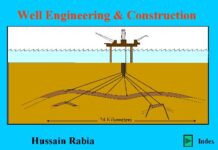





![[PDF] Digital Image Processing An Algorithmic Introduction Using Java Digital Image Processing An Algorithmic Introduction Using Java](https://www.freepdfbook.com/wp-content/uploads/2022/06/Digital-Image-Processing-An-Algorithmic-Introduction-Using-Java.jpg)

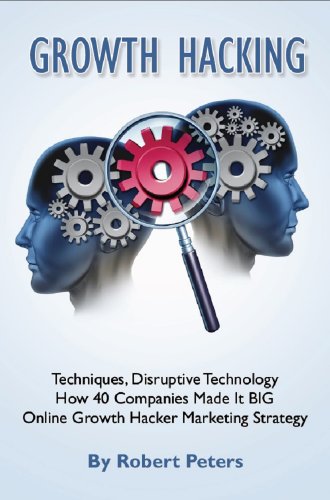

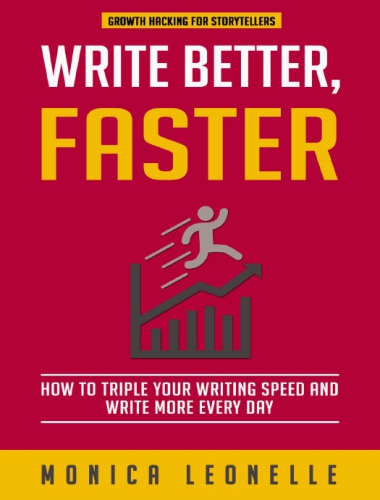
![[PDF] 43 Years JEE ADVANCED + JEE MAIN Chapterwise & Topicwise Solved Papers 43 Years JEE ADVANCED (1978-2020) + JEE MAIN Chapterwise & Topicwise Solved Papers Physics PDF](https://www.freepdfbook.com/wp-content/uploads/2022/03/43-Years-JEE-ADVANCED-1978-2020.jpg)

![[PDF] Problems in Physical Chemistry for JEE (Main & Advanced) Problems in Physical Chemistry for JEE (Main & Advanced) Free PDF Book Download](https://www.freepdfbook.com/wp-content/uploads/2022/03/Problems-in-Physical-Chemistry-for-JEE-Main-Advanced.jpg)
![[PDF] Engineering Physics (McGraw Hill)](https://www.freepdfbook.com/wp-content/uploads/2021/05/bafc8c2685bb6823a9c56134f7fba5df.jpeg)

![[PDF] Engineering Chemistry By Shashi Chawla](https://www.freepdfbook.com/wp-content/uploads/2022/05/Theory-And-Practicals-of-Engineering-Chemistry-By-Shashi-Chawla-free-pdf-book.jpeg)
![[PDF] Chemistry: An Introduction to Organic, Inorganic & Physical Chemistry Chemistry: An Introduction to Organic, Inorganic & Physical Chemistry](https://www.freepdfbook.com/wp-content/uploads/2022/04/Chemistry-An-Introduction-to-Organic-Inorganic-Physical-Chemistry.jpg)
![[PDF] Essentials of Physical Chemistry Essentials of Physical Chemistry Free PDF Book by Bahl](https://www.freepdfbook.com/wp-content/uploads/2022/04/Essentials-of-Physical-Chemistry-bahl.jpg)
![[PDF] Biological control of plant-parasitic nematodes: soil ecosystem management in sustainable agriculture Biological control of plant-parasitic nematodes: soil ecosystem management in sustainable agriculture](https://www.freepdfbook.com/wp-content/uploads/2022/05/Biological-control-of-plant-parasitic-nematodes-soil-ecosystem-management-in-sustainable-agriculture.jpg)
![[PDF] Human Anatomy: Color Atlas and Textbook Human Anatomy: Color Atlas and Textbook Free PDF Book](https://www.freepdfbook.com/wp-content/uploads/2022/05/Human-Anatomy-Color-Atlas-and-Textbook.jpg)
![[PDF] Concepts of Biology Book [Free Download]](https://www.freepdfbook.com/wp-content/uploads/2022/05/Concepts-of-Biology.jpg)
![[PDF] Essentials of Biology [Free Download] Essentials of Biology Free PDF BOok Download](https://www.freepdfbook.com/wp-content/uploads/2022/05/Essentials-of-Biology-Free-PDF-Book-Downlaod.jpg)
![[PDF] Human Biology Book [Free Download]](https://www.freepdfbook.com/wp-content/uploads/2022/05/PDF-Human-Biology-Book-Free-Download.jpg)
